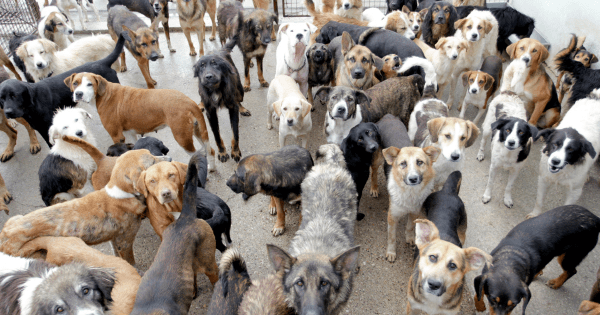Owning a dog is a rewarding experience, bringing joy, companionship, and even health benefits. However, it also requires significant responsibility. For first-time dog owners or even seasoned pet lovers, understanding the key considerations when raising a dog can ensure the happiness and well-being of both the pet and its owner. In this guide, we will explore essential aspects such as nutrition, exercise, health care, training, and emotional well-being that are crucial to successfully raising a dog.

1. Choosing the Right Dog Breed for Your Lifestyle
Before welcoming a dog into your home, it’s important to consider the breed and whether its characteristics match your lifestyle. Each dog breed has unique energy levels, temperaments, and care requirements.
- Energy Levels: Some breeds, like Border Collies or Labrador Retrievers, are highly energetic and require extensive daily exercise. If you’re an active person who enjoys outdoor activities, these breeds may fit your lifestyle well. On the other hand, if you prefer a more relaxed pace, lower-energy dogs like Bulldogs or Shih Tzus might be a better fit.
- Temperament: Consider the temperament of the breed and how it meshes with your household. For example, Golden Retrievers are known for their friendly and tolerant nature, making them ideal for families with children. In contrast, breeds like Chihuahuas or Dachshunds might be more independent and require different training approaches.
- Living Space: Larger dogs often require more space, both indoors and outdoors. Apartment dwellers might prefer smaller or low-energy breeds, such as French Bulldogs or Cocker Spaniels, which are better suited to confined living spaces.
2. Providing Proper Nutrition
A balanced diet is essential to maintaining your dog’s overall health. Dogs require a variety of nutrients, including proteins, fats, carbohydrates, vitamins, and minerals. The nutritional needs of your dog can vary based on factors like age, breed, size, and activity level.
- High-Quality Dog Food: Ensure that your dog is eating high-quality commercial dog food that meets their specific needs. Look for dog foods that list a high-quality source of animal protein, like chicken or beef, as the primary ingredient. Avoid foods with fillers like corn or soy, which offer little nutritional value.
- Portion Control: Overfeeding is a common mistake that can lead to obesity, which brings its own set of health issues. Follow feeding guidelines on your dog’s food packaging and adjust according to your dog’s age, size, and energy expenditure.
- Hydration: Always provide fresh water to keep your dog hydrated, especially during hot weather or after vigorous activities. Proper hydration is critical for kidney function and overall health.

3. Exercise and Physical Activity
Dogs need regular exercise not only to maintain a healthy weight but also to keep their muscles and joints strong. Physical activity also helps manage behavioral issues, reducing boredom and the potential for destructive behavior.
- Daily Walks: For most breeds, regular walks are essential. Larger or more active dogs may need at least an hour or more of walking, jogging, or other forms of exercise each day. Ensure that walks are engaging by allowing your dog time to sniff and explore their environment, which stimulates their minds.
- Playtime: Engage in activities that match your dog’s interests. For example, fetch, frisbee, and agility training are great ways to keep energetic dogs like Border Collies or Australian Shepherds entertained. Meanwhile, puzzle toys or slow feeders can provide mental stimulation for dogs that may not need as much physical activity.

4. Regular Veterinary Care
Regular veterinary check-ups are critical to preventing and managing health issues. Dogs need routine care to ensure they are free from diseases, parasites, and other health concerns.
- Vaccinations: Ensure that your dog is up to date on core vaccinations, including rabies, distemper, and parvovirus. Depending on your location and lifestyle, non-core vaccines like Lyme disease or Bordetella may also be recommended.
- Flea and Tick Prevention: Fleas and ticks can cause a variety of health issues, from skin irritations to more serious conditions like Lyme disease. Preventive treatments like topical solutions or oral medications can protect your dog from these pests.
- Spaying and Neutering: If you do not plan on breeding your dog, spaying or neutering is important. This helps reduce the risk of certain cancers and behavioral issues while
READ NEXT: The Benefits of Owning a Dog for Kids and Families

May I request more information on the subject? All of your articles are extremely useful to me. Thank you!
Thanks for posting. I really enjoyed reading it, especially because it addressed my problem. It helped me a lot and I hope it will help others too.
Thank you very much
Thanks for your help and for writing this post. It’s been great.
The articles you write help me a lot and I like the topic
Thank you for your help and this post. It’s been great.
Good web site! I truly love how it is easy on my eyes and the data are well written. I am wondering how I could be notified whenever a new post has been made. I’ve subscribed to your RSS which must do the trick! Have a nice day!
May I request that you elaborate on that? Your posts have been extremely helpful to me. Thank you!
I’m so in love with this. You did a great job!!
Thank you for your articles. I find them very helpful. Could you help me with something?
Thank you for your articles. I find them very helpful. Could you help me with something?
I used to be suggested this website by means of my cousin. I am not sure whether or not this put up is written by him as nobody else recognise such specified approximately my problem. You’re amazing! Thanks!
I truly appreciate this post. I have been looking everywhere for this! Thank goodness I found it on Bing. You have made my day! Thx again
Thanks for the interesting things you have disclosed in your writing. One thing I’d really like to comment on is that FSBO associations are built after some time. By releasing yourself to the owners the first end of the week their FSBO is usually announced, before the masses start calling on Monday, you generate a good link. By sending them equipment, educational resources, free reviews, and forms, you become a strong ally. By subtracting a personal curiosity about them and also their situation, you build a solid network that, oftentimes, pays off as soon as the owners opt with a realtor they know and also trust – preferably you actually.